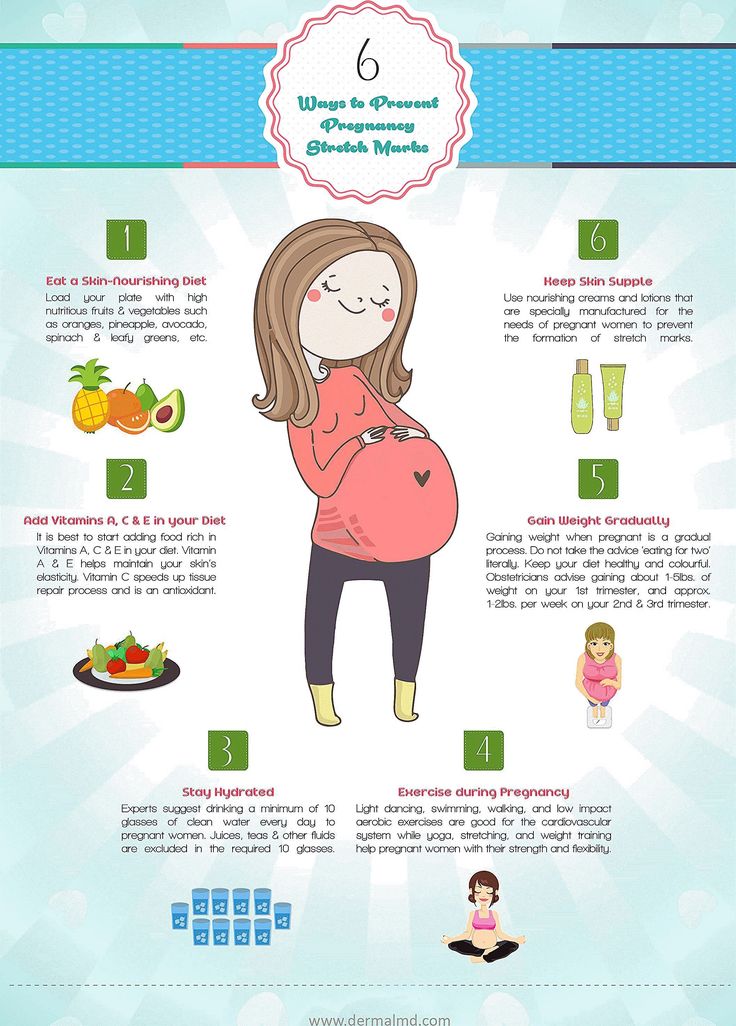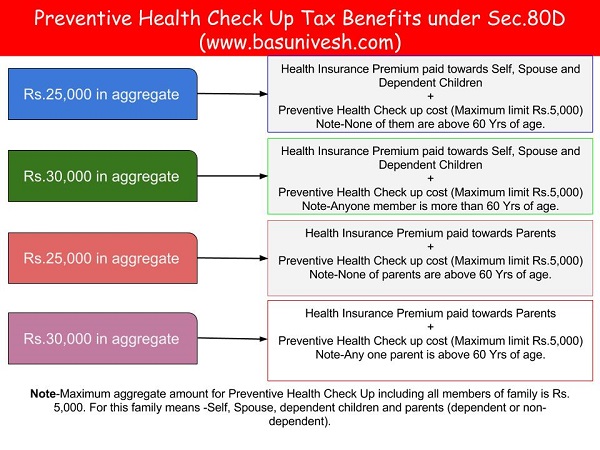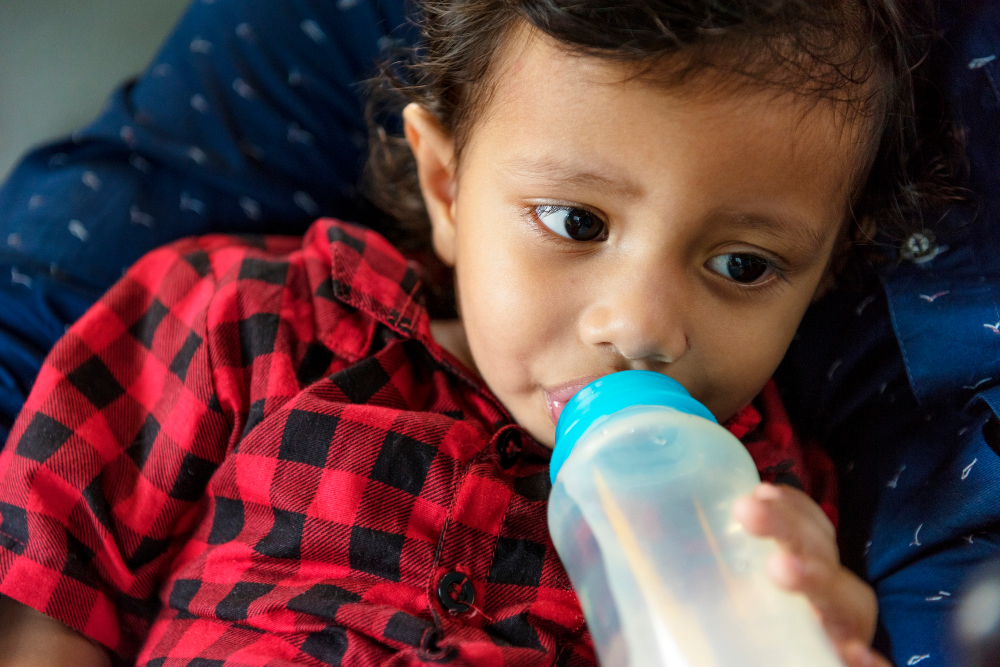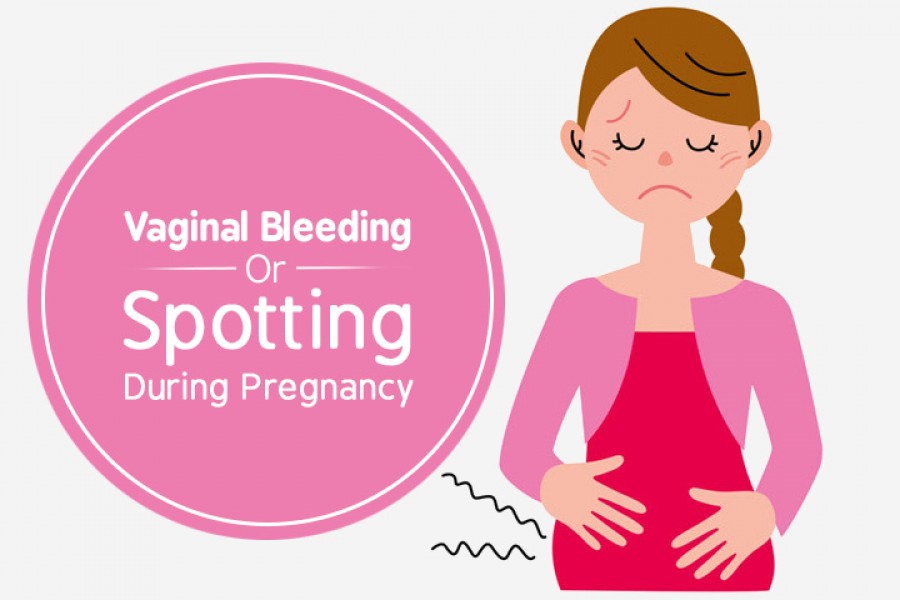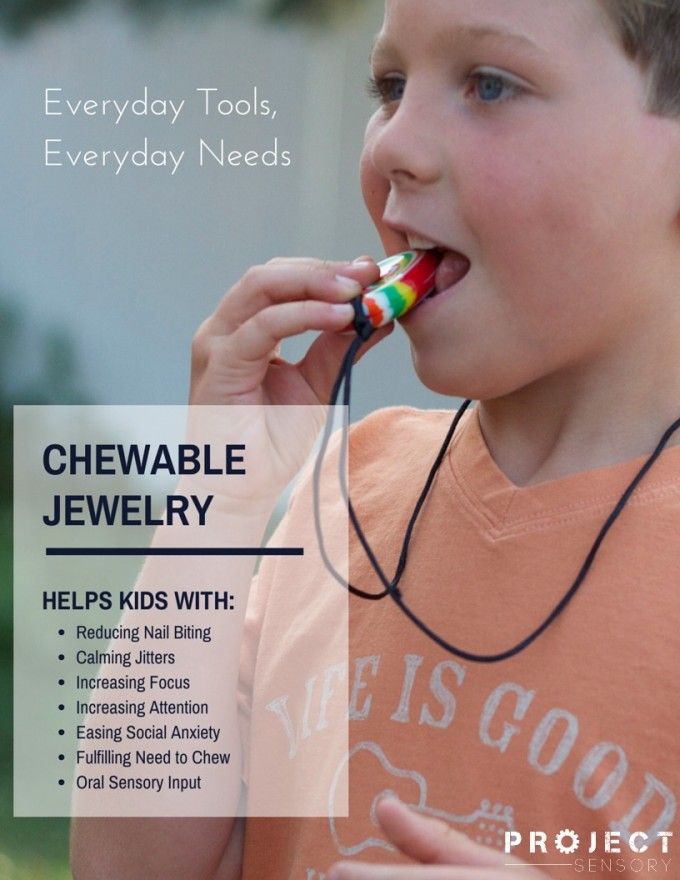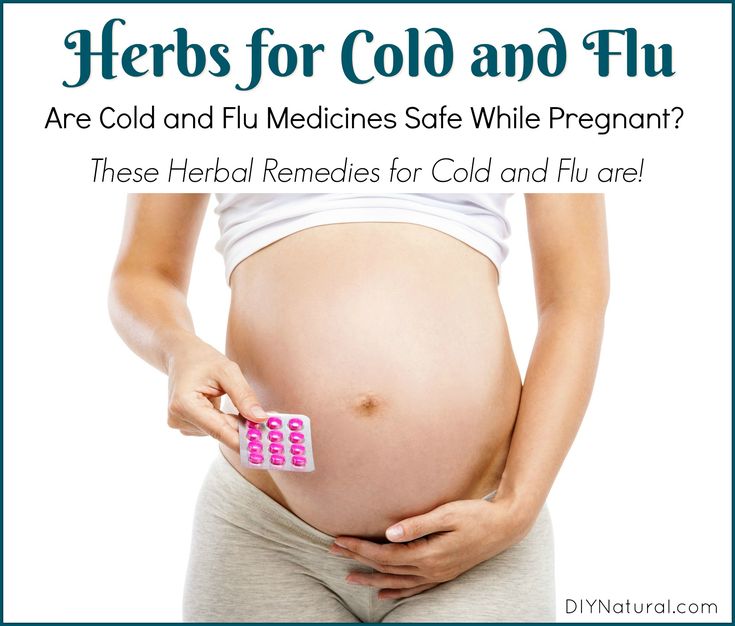Restricted food during pregnancy
Foods to avoid or limit during pregnancy
Raw meat, fish and eggs can contain harmful germs that can give you food poisoning, like salmonella infection. Cooking them fully kills the germs, which helps keep you and your baby from getting sick.
Many dairy products, like milk, eggs and cheese, are pasteurized. This means they’re heated to kill any bad germs. Look for the word “pasteurized” on labels. If the product label doesn’t say “pasteurized,” pick a different product.
Unpasteurized dairy products can give you food poisoning, like listeriosis. Listeriosis is caused by germs in foods and can cause flu-like symptoms for you or hurt your baby.
Some foods contain chemicals, like caffeine or mercury. You can pass these harmful chemicals to your baby during pregnancy.
Talk to your health care provider if you have any signs or symptoms of food poisoning or if you are worried you may have eaten a food with bacteria like listeriosis.
What foods should you limit during pregnancy?
Not every food is safe to eat during pregnancy. Some foods may be harmful to you or your baby because of the way they’re cooked or because of germs or chemicals they contain.
These foods are OK to eat during pregnancy in limited amounts:
- Fish that have small amounts of mercury. Mercury is a metal that can harm your baby. Fish get mercury from the water they swim in and from eating other fish that have mercury in them. By eating fish that contain mercury, you can pass the metal to your baby during pregnancy. This can cause brain damage and affect your baby’s hearing and vision. During pregnancy, eat 8 to 12 ounces a week of fish that doesn’t have a lot of mercury, including shrimp, salmon, pollock, catfish and canned light tuna. It’s also OK to eat 6 ounces a week of albacore (white) tuna. If you eat fish, cook it so that the inside temperature is 145 degrees and see if it separates into flakes.
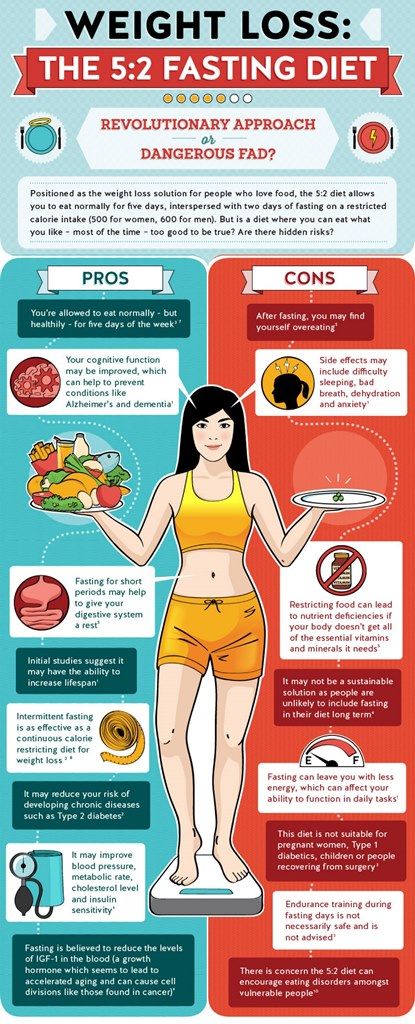 Shrimp, lobster and scallops should be milky white. Clams, mussels and oysters should cook until shells open.
Shrimp, lobster and scallops should be milky white. Clams, mussels and oysters should cook until shells open. - Food and drinks that have caffeine. Limit the caffeine you get each day to less than 200 milligrams. This is about the amount in 1½ 8-ounce cups of coffee or one 12-ounce cup of coffee. Caffeine amounts in coffee vary a lot and depend on things, like the brand you drink, how it's made and the size of the cup. Not all coffee cups are the same size, even though you think of them as a cup. Check to see how many ounces your cup has, especially if you’re buying a cup of coffee or tea. Instead of drinking regular coffee, try coffee that's decaffeinated (has a small amount of caffeine). Caffeine also is found in tea, energy drinks, chocolate, soda and some over-the-counter medicine. Read labels on food, drinks and medicine to know how much caffeine you're getting.
What foods are completely off limits during pregnancy?
Don’t eat these foods during pregnancy.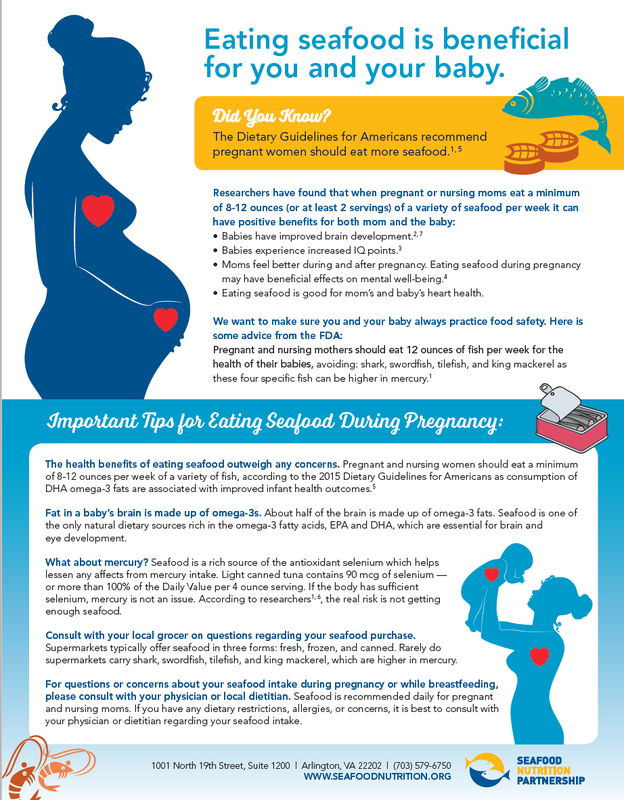 They can be really harmful to you and your baby.
They can be really harmful to you and your baby.
Certain meats and fish
- Raw or undercooked meat, including beef, poultry and pork. This includes hotdogs and deli meat (like ham or bologna). If you eat hotdogs or deli meat, cook them until they are steaming hot or just avoid completely.
- Raw fish, especially shellfish. Don’t eat sushi unless the fish is cooked. Also avoid ceviche, sashimi, and raw oysters.
- Fish that can be high in mercury, like shark, swordfish, king mackerel and tilefish. Always check with your local health department before you eat any fish you catch yourself.
- Refrigerated pates, meat spreads or smoked seafood. If it is cooked into a dish like casserole it is OK. Pates that are shelf-stable (they can be stored unrefrigerated) are also OK.
Certain dairy products
- Raw or lightly cooked eggs or foods made with them. This includes cake batter and raw cookie dough.
- Soft-scrambled eggs
- Products made with uncooked eggs like certain Caesar salad dressings, eggnog or certain sauces like hollandaise.
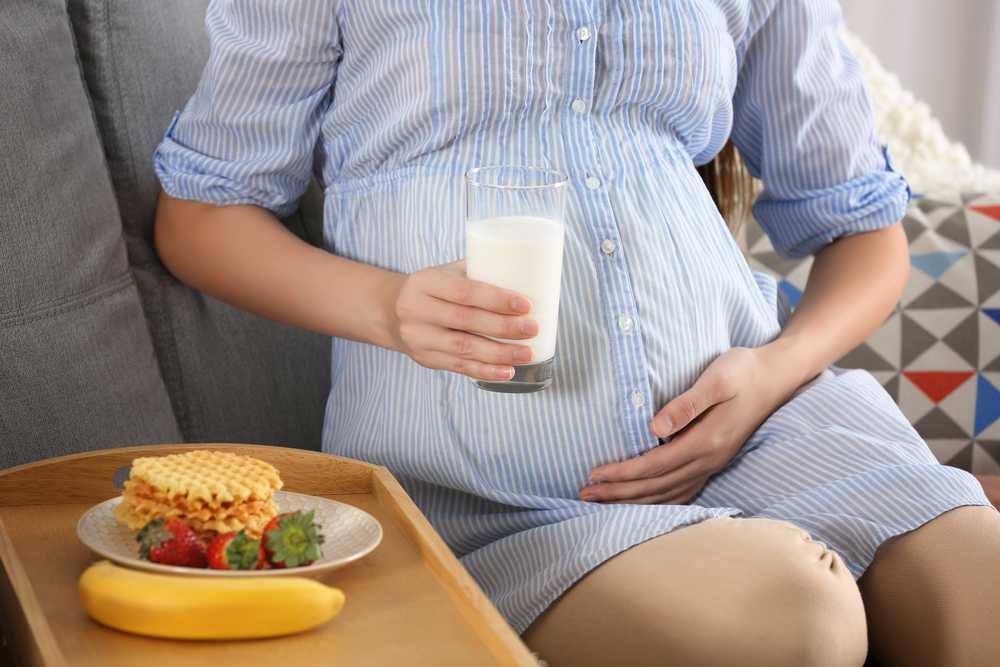 Shelf-stable commercially made Caesar salad dressing is OK to eat because it doesn’t contain uncooked eggs.
Shelf-stable commercially made Caesar salad dressing is OK to eat because it doesn’t contain uncooked eggs. - Unpasteurized juice or milk or any foods made with them
- Unpasteurized soft cheeses, such as brie, feta, Camembert, Roquefort, queso blanco, queso fresco and Panela
Other
- Raw sprouts of any kind including mung beans, clover, radish and especially alfalfa sprouts
- Unwashed raw fruits or vegetables. Wash all your fruits and vegetables before eating them.
- Store-made salads like chicken, egg or tuna salads
- Herbal products, like pills and teas. Herbal products are made from herbs, which are plants used in cooking or medicine. We don’t know enough about herbal products to know if they’re safe to use during pregnancy. So it’s best not to use them while you’re pregnant.
- Nonfood items, like clay, starch, paraffin or coffee grounds. Tell your provider if you crave anything like this that’s not food.
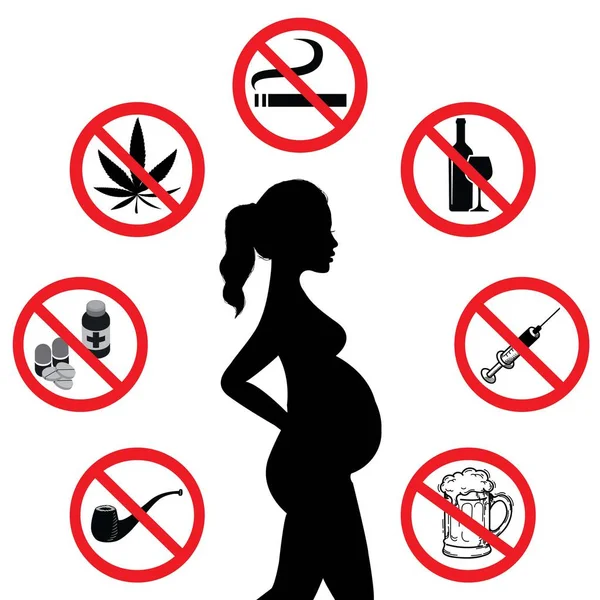
- Alcohol. There is no known safe amount of alcohol to drink while you’re pregnant.
More information
choosemyplate.gov
Last reviewed March, 2020
11 Foods and Beverages to Avoid During Pregnancy
The foods you should avoid while pregnant typically include undercooked or raw meat or fish and other foods that can carry a risk of infection. You may also need to minimize caffeine and certain beverages.
One of the first things people learn when they’re pregnant is what they can’t eat. It can be a real bummer if you’re a big sushi, coffee, or rare steak fan.
Thankfully, there’s more you can eat than what you can’t. You just have to learn how to navigate the waters (the low mercury waters, that is). You’ll want to pay close attention to what you eat and drink to stay healthy.
Certain foods should only be consumed rarely, while others should be avoided completely. Here are 11 foods and beverages to avoid or minimize while pregnant.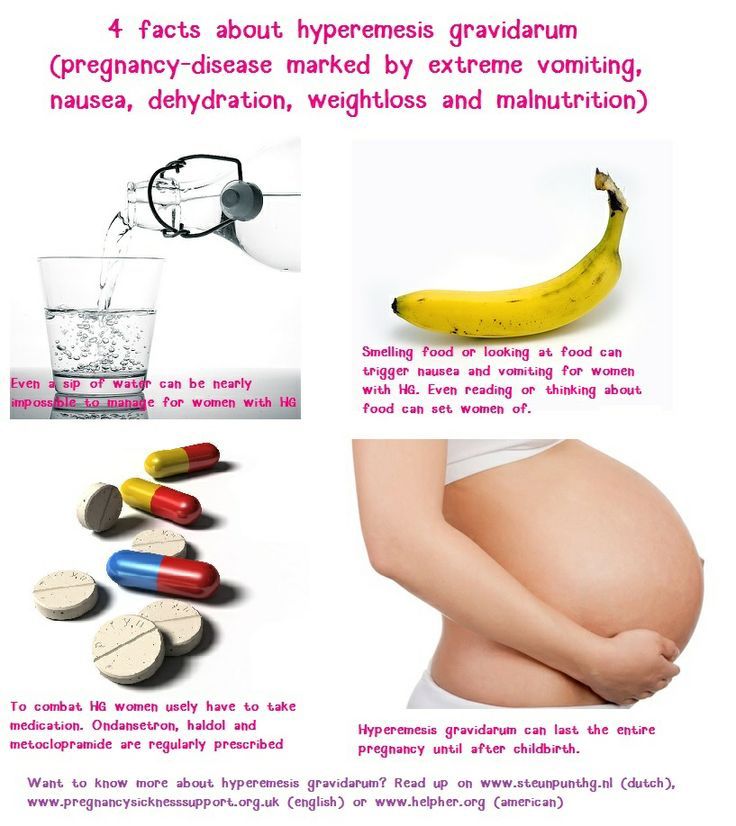
Mercury is a highly toxic element. It has no known safe level of exposure and is most commonly found in polluted water.
In higher amounts, it can be toxic to your nervous system, immune system, and kidneys. It may also cause serious developmental problems in children, with adverse effects even in lower amounts.
Since it’s found in polluted seas, large marine fish can accumulate high amounts of mercury. Therefore, it’s best to avoid high mercury fish while pregnant and breastfeeding.
High-mercury fish you want to avoid include:
- shark
- swordfish
- king mackerel
- tuna (especially bigeye tuna)
- marlin
- tilefish from the Gulf of Mexico
- orange roughy
However, it’s important to note that not all fish are high in mercury — just certain types.
Consuming low mercury fish during pregnancy is very healthy, and these fish can be eaten up to three times per week, according to the Food and Drug Administration (FDA).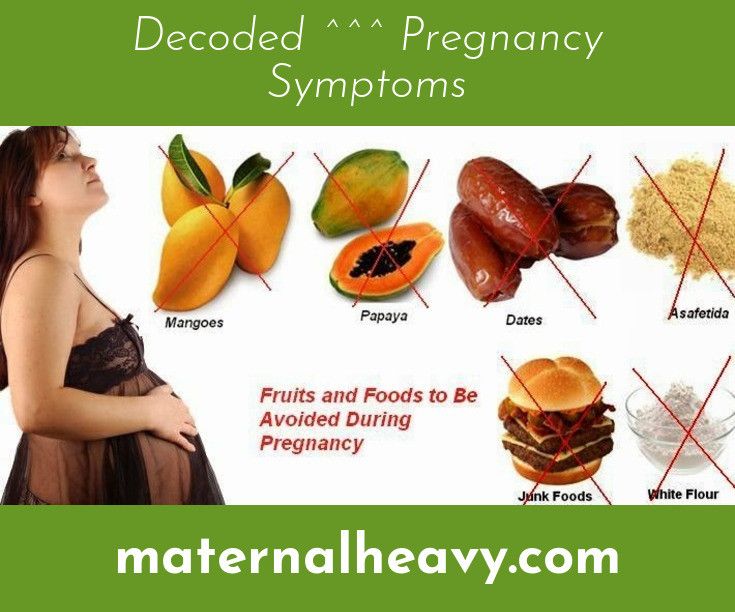
Low mercury fish are plentiful and include:
- anchovies
- cod
- flounder
- haddock
- salmon
- tilapia
- trout (freshwater)
Fatty fish like salmon and anchovies are especially good options, as they are high in omega-3 fatty acids, which are important for your baby.
This one will be tough for you sushi fans, but it’s an important one. Raw fish, especially shellfish, can cause several infections. These can be viral, bacterial, or parasitic infections, such as norovirus, Vibrio, Salmonella, and Listeria.
Some of these infections may only affect you, causing dehydration and weakness. Other infections may be passed on to your baby with serious, or even fatal, consequences.
Pregnant women are especially susceptible to listeria infections. In fact, according to the Centers for Disease Control and Prevention (CDC), pregnant women are up to 10 times more likely to get infected by Listeria than the general population.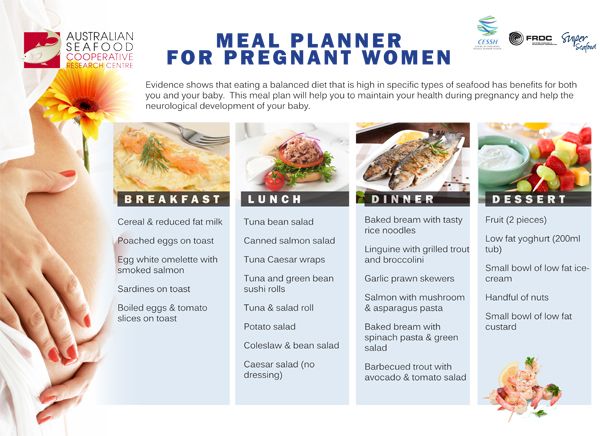 Pregnant Hispanic women are 24 times more at risk.
Pregnant Hispanic women are 24 times more at risk.
This bacteria can be found in soil and contaminated water or plants. Raw fish can become infected during processing, including smoking or drying.
Listeria bacteria can be passed to your baby through the placenta, even if you’re not showing any signs of illness. This can lead to premature delivery, miscarriage, stillbirth, and other serious health problems, according to the CDC.
It’s definitely advised to avoid raw fish and shellfish, including many sushi dishes. But don’t worry, you’ll enjoy it that much more after baby is born and it’s safer to eat again.
Some of the same issues with raw fish affect undercooked meat, too. Eating undercooked or raw meat increases your risk of infection from several bacteria or parasites, including Toxoplasma, E. coli, Listeria, and Salmonella.
Bacteria may threaten the health of your little one, possibly leading to stillbirth or severe neurological illnesses, including intellectual disability, blindness, and epilepsy.
While most bacteria are found on the surface of whole pieces of meat, other bacteria may linger inside the muscle fibers.
Some whole cuts of meat — such as tenderloins, sirloins, or ribeye from beef, lamb and veal — may be safe to consume when not cooked all the way through. However, this only applies when the piece of meat is whole or uncut, and completely cooked on the outside.
Cut meat, including meat patties, burgers, minced meat, pork, and poultry, should never be consumed raw or undercooked. So keep those burgers on the grill well done for now.
Hot dogs, lunch meat, and deli meat are also of concern, which is sometimes surprising to pregnant people. These types of meat may become infected with various bacteria during processing or storage.
Pregnant women should not consume processed meat products unless they’ve been reheated until steaming hot.
Raw eggs can be contaminated with the Salmonella bacteria.
Symptoms of salmonella infections include fever, nausea, vomiting, stomach cramps, and diarrhea.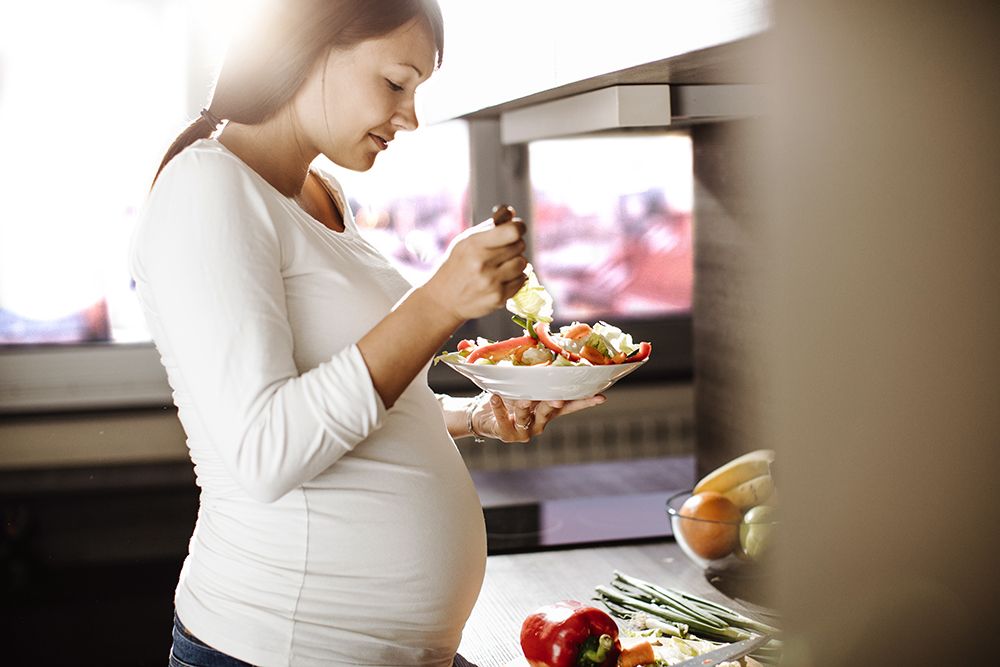
However, in rare cases, the infection may cause cramps in the uterus, leading to premature birth or stillbirth.
Foods that commonly contain raw eggs include:
- lightly scrambled eggs
- poached eggs
- hollandaise sauce
- homemade mayonnaise
- some homemade salad dressings
- homemade ice cream
- homemade cake icings
Most commercial products that contain raw eggs are made with pasteurized eggs and are safe to consume. However, you should always read the label to make sure.
To be on the safe side, make sure to always cook eggs thoroughly or use pasteurized eggs. Save those super runny yolks and homemade mayo until after baby makes their debut.
Organ meat is a great source of a variety of nutrients.
These include iron, vitamin B12, vitamin A, zinc, selenium, and copper — all of which are good for you and baby. However, eating too much animal-based vitamin A (preformed vitamin A) is not recommended during pregnancy.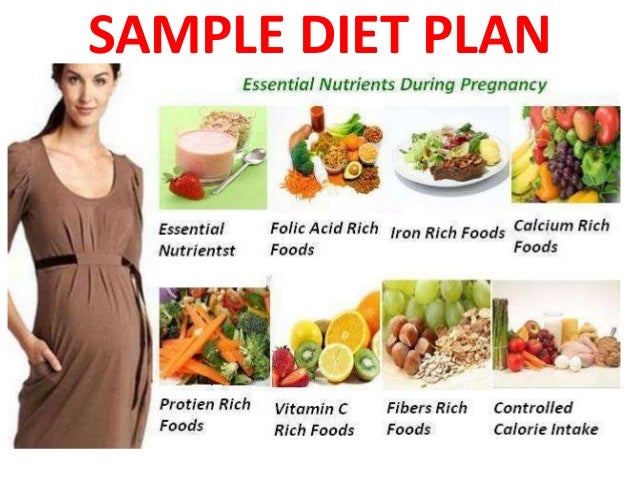
Consuming too much preformed vitamin A, especially in the first trimester of pregnancy, can lead to congenital malformations and miscarriage.
Although this is mostly associated with vitamin A supplements, it’s best to keep your consumption of organ meats like liver to just a few ounces once per week.
You may be one of the millions of folks who love their daily cups of coffee, tea, soft drinks, or cocoa. You’re definitely not alone when it comes to our love of caffeine.
Pregnant people are generally advised to limit their caffeine intake to less than 200 milligrams (mg) per day, according to the American College of Obstetricians and Gynecologists (ACOG).
Caffeine is absorbed very quickly and passes easily into the placenta. Because babies and their placentas don’t have the main enzyme needed to metabolize caffeine, high levels can build up.
High caffeine intake during pregnancy has been shown to restrict fetal growth and increase the risk of low birth weight at delivery.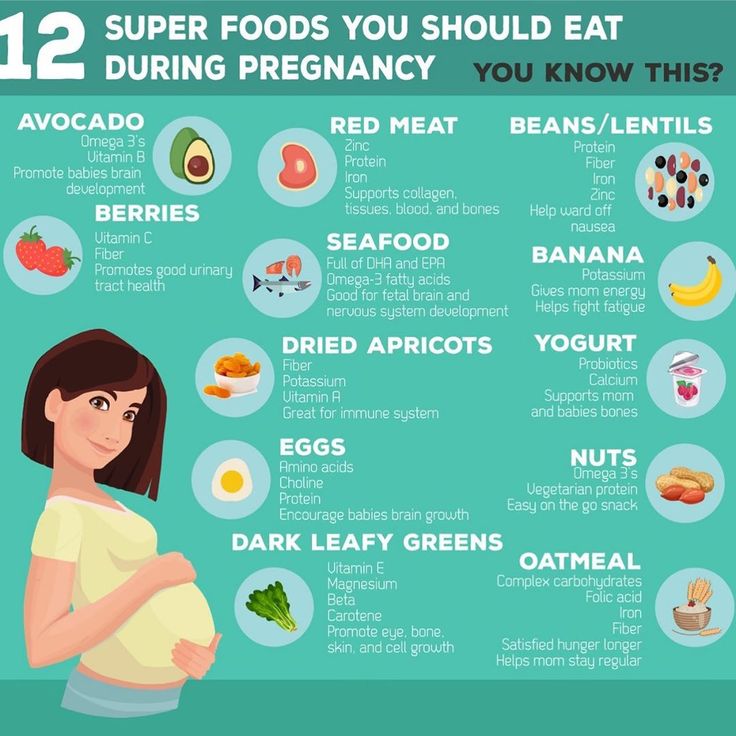
Low birth weight — defined as less than 5 lbs., 8 oz. (or 2.5 kg) — is associated with an increased risk of infant death and a higher risk of chronic diseases in adulthood.
So keep an eye on your daily cup of joe or soda to make sure baby doesn’t have exposure to too much caffeine.
Your healthy salad choice may not be free from rogue ingredients, either. Raw sprouts, including alfalfa, clover, radish, and mung bean sprouts, may be contaminated with Salmonella.
The humid environment required by seeds to start sprouting is ideal for these kinds of bacteria, and they’re almost impossible to wash off.
For this reason, you’re advised to avoid raw sprouts altogether. However, sprouts are safe to consume after they have been cooked, according to the FDA.
The surface of unwashed or unpeeled fruits and vegetables may be contaminated with several bacteria and parasites.
These include Toxoplasma, E. coli, Salmonella, and Listeria, which can be acquired from the soil or through handling.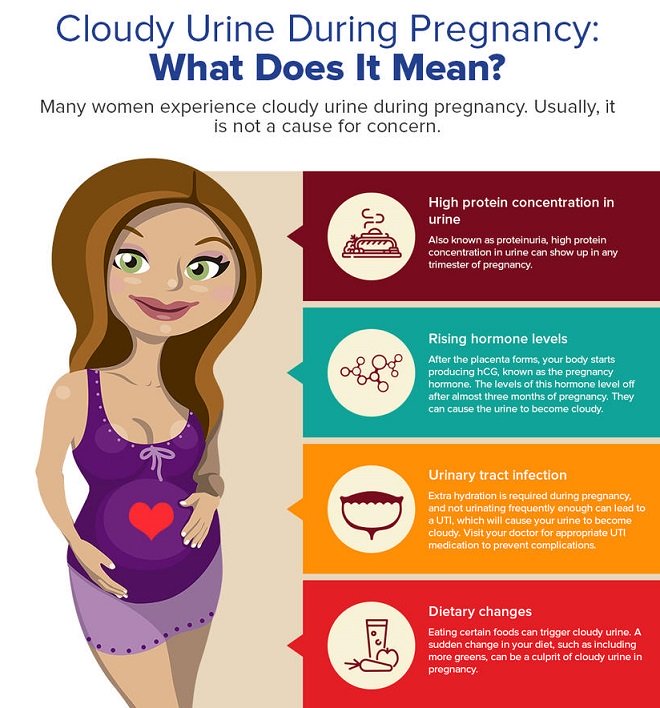
Contamination can occur at any time during production, harvest, processing, storage, transportation, or retail. One dangerous parasite that may linger on fruits and vegetables is called Toxoplasma.
The majority of people who get toxoplasmosis have no symptoms, while others may feel like they have the flu for a month or more.
Most infants who are infected with the Toxoplasma bacteria while still in the womb have no symptoms at birth. However, symptoms such as blindness or intellectual disabilities may develop later in life.
What’s more, a small percentage of infected newborns have serious eye or brain damage at birth.
While you’re pregnant, it’s very important to minimize the risk of infection by thoroughly washing with water, peeling, or cooking fruits and vegetables. Keep it up as a good habit after baby arrives, too.
Raw milk, unpasteurized cheese, and soft-ripened cheeses can contain an array of harmful bacteria, including Listeria, Salmonella, E. coli, and Campylobacter. (These are probably sounding familiar by now.)
coli, and Campylobacter. (These are probably sounding familiar by now.)
The same goes for unpasteurized juice, which is also prone to bacterial contamination. These infections can all have life-threatening consequences for an unborn baby.
The bacteria can be naturally occurring or caused by contamination during collection or storage. Pasteurization is the most effective way to kill any harmful bacteria, without changing the nutritional value of the products.
To minimize the risk of infections, eat only pasteurized milk, cheese, and fruit juice.
It’s advised to completely avoid drinking alcohol when pregnant, as it increases the risk of miscarriage and stillbirth. Even a small amount can negatively impact your baby’s brain development.
Drinking alcohol during pregnancy can also cause fetal alcohol syndrome, which involves facial deformities, heart defects and intellectual disability.
Since no level of alcohol has been proven to be safe during pregnancy, it’s recommended to avoid it altogether.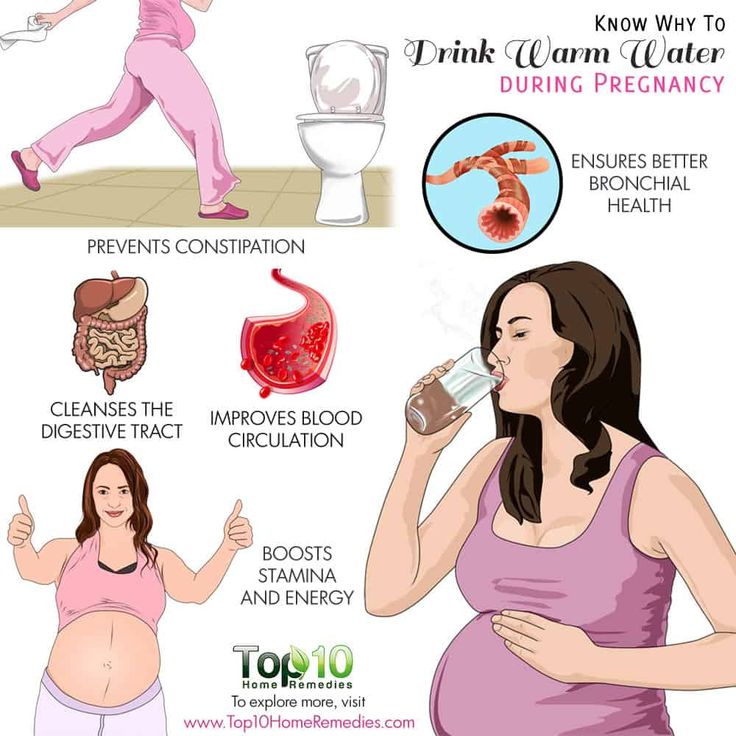
There’s no better time than pregnancy to start eating nutrient-dense foods to help both you and your growing little one. You’ll need increased amounts of many essential nutrients, including protein, folate, choline, and iron.
It’s also a myth that you’re “eating for two.” You can eat as you normally do during the first semester, then increase by about 350 calories per day in your second trimester, and about 450 calories per day in your third trimester.
An optimal pregnancy eating plan should mainly consist of whole foods, with plenty of nutrients to fulfill yours and baby’s needs. Processed junk food is generally low in nutrients and high in calories, sugar, and added fats.
While some weight gain is necessary during pregnancy, excess weight gain has been linked to many complications and diseases. These include an increased risk of gestational diabetes, as well as pregnancy or birth complications.
Stick to meals and snacks that focus on protein, vegetables and fruits, healthy fats, and fiber-rich carbohydrates like whole grains, beans, and starchy vegetables.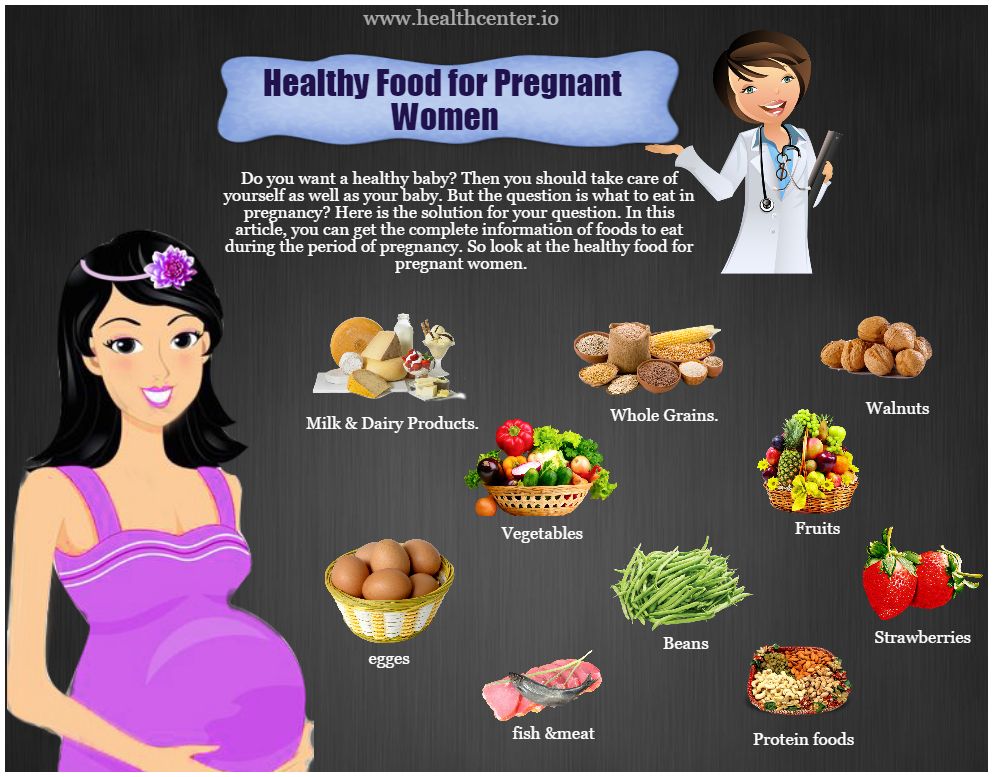 Don’t worry, there are lots of ways to sneak veggies into your meals without sacrificing taste.
Don’t worry, there are lots of ways to sneak veggies into your meals without sacrificing taste.
When you’re pregnant, it’s essential to avoid foods and beverages that may put you and your baby at risk.
Although most foods and beverages are perfectly safe to enjoy, some, like raw fish, unpasteurized dairy, alcohol, and high mercury fish, should be avoided.
Plus, some foods and beverages like coffee and foods high in added sugar, should be limited in order to promote a healthy pregnancy.
If you want to learn more about what foods you should eat during pregnancy, check out this article: Healthy Eating During Pregnancy.
Quick tips for foods to avoid when pregnant
- Avoid high-mercury fish including shark, swordfish, tuna, and marlin.
- Raw fish and shellfish can be contaminated with bacteria and parasites. Some of these can cause adverse health effects and harm both you and baby.
- Raw or undercooked meat may contain harmful bacteria.
As a general rule, meat should be cooked all the way through.
- Raw eggs may be contaminated with Salmonella, and may put you and your baby at risk. Be sure to thoroughly cook eggs before eating.
- Organ meat is a great source of iron, vitamin B12, vitamin A, and copper. To prevent consuming too much vitamin A limit your intake of organ meat to a few ounces once a week.
- Limit caffeine intake to under 200 mg per day, which is about 2 to 3 cups of coffee. High caffeine intake during pregnancy may limit baby’s growth and cause low birth weight.
- Raw sprouts may be contaminated with bacteria. Only eat them thoroughly cooked.
- Fruits and vegetables may be contaminated with harmful bacteria, including Toxoplasma. It’s important to thoroughly wash all fruits and vegetables with plenty of clean water.
- Don’t consume unpasteurized milk, cheese, or fruit juice, as these foods increase the risk of bacterial infections.
- Avoid all alcohol.
Drinking alcohol can increase the risk of miscarriage, stillbirth, and fetal alcohol syndrome.
- Eating processed foods during pregnancy can increase your risk of excess weight gain, gestational diabetes, and complications. This can have long-term health implications for you and your child.
Nutrition of a pregnant woman
So, your plans and decisions to give birth to a child have come true - you are pregnant! But this news causes you a double feeling: - on the one hand, a feeling of joy, and on the other hand, a feeling of certain fear and even fear of unknown trials for your life and the fate of the unborn baby. What will he be like? - healthy, beautiful, happy?...
And this largely depends on the woman herself, on what lifestyle she will lead during pregnancy and, most importantly, how she will eat.
Nutrition of a woman in different periods of pregnancy
The main thing in the menu of a future mother is variety. She should consume foods from all food groups: meat, fish, vegetables and fruits, dairy products, bread and cereals.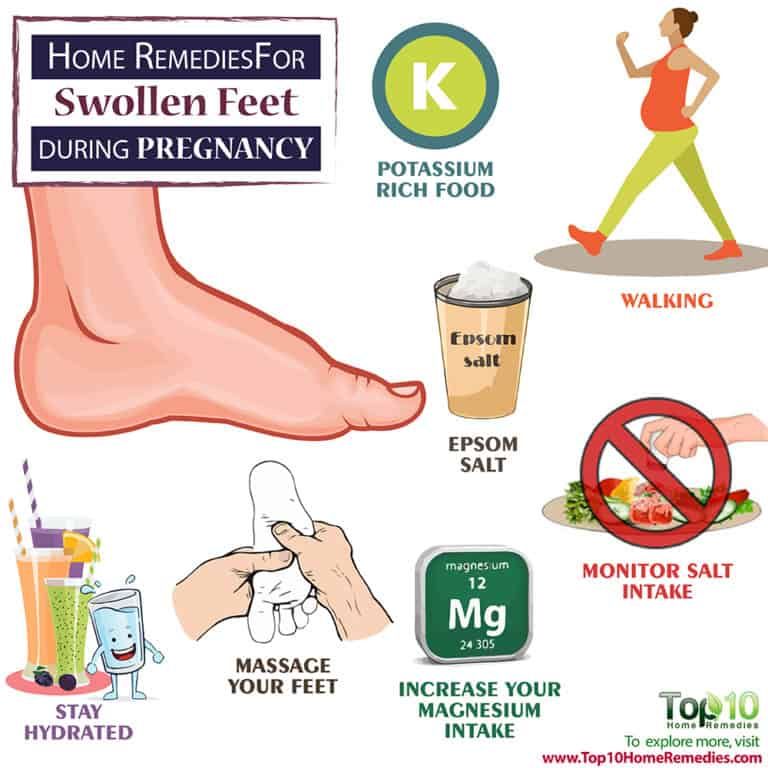
A woman's nutrition during pregnancy can be roughly divided into three periods (trimesters).
If before pregnancy a woman ate normally, felt comfortable, did not experience allergies to any products, then it is not worth changing her diet at an early stage of the first trimester of pregnancy.
During this period, all organs and systems in the child's body are formed, tissues are formed. The body needs complete proteins and vitamins: lean meat (rabbit, chicken, turkey), fish and seafood, dairy products. Be sure to eat rice, fresh or frozen vegetables, seasonal fruits. In the first trimester, many expectant mothers are still working. No matter how difficult it is to control your diet in the workplace, you need to do it - find time for a full breakfast and lunch.
In the first trimester of pregnancy, there is an active restructuring of the body and adaptation to a new state. During this period, it is recommended to switch to a low-calorie diet, which includes more fruits, juices, decoctions of dried fruits, including rose hips. At the very beginning of pregnancy, especially if toxicosis torments, more frequent, but less plentiful meals are recommended.
At the very beginning of pregnancy, especially if toxicosis torments, more frequent, but less plentiful meals are recommended.
Always keep a hematogen, a bag of nuts or dried fruit in your pocket to have a snack on the street. If your condition does not allow you to eat regular food, you should pay attention to baby food. Baby products literally save expectant mothers suffering from severe toxicosis. These are boxed cereals, children's curds, cookies and fruit purees.
In the first trimester, special attention must be paid to the quality of products. Gradually abandon sauces, semi-finished products and canned food containing harmful chemical additives. Do not forget that the placenta freely accumulates and passes chemistry. The importance of products containing folic acid is great, without it intensive metabolism is impossible, its deficiency can cause developmental abnormalities. Folic acid is found in greens, nuts, white cabbage and broccoli, beets, legumes, and eggs.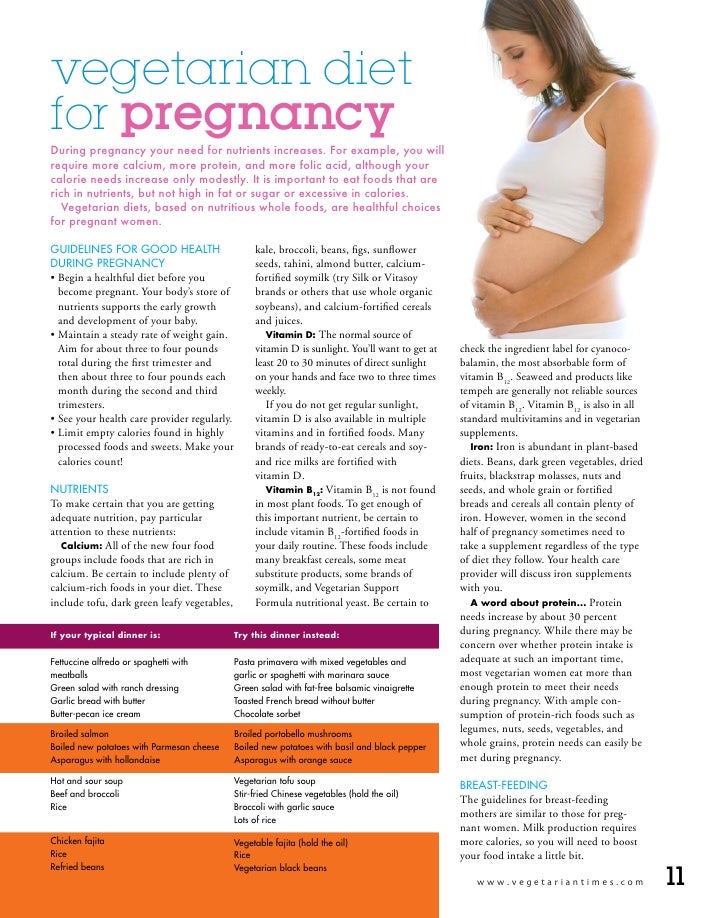
According to nutritionists, the diet of pregnant women should be 300 kcal / day higher than that of non-pregnant women, but in the first trimester there is no need to increase the energy value of the diet at all; in the second trimester, an additional 340 kcal / day is required; in the third trimester - 452 kcal / day. Pregnant women generally get enough calories, and more than 80% of women achieve and even exceed the required weight gain. These extra calories benefit the fetus. An underweight woman should gain 16–20 kg during her entire pregnancy, an overweight woman about 7 kg, and a normal body weight of 11–12 kg.
In the second trimester there are active jumps in the height and weight of the baby and uterus, so the caloric content of the diet needs to be increased. It is desirable to eat more and better. At this time, the need for trace elements increases: iron, magnesium, zinc, selenium, calcium, potassium. The child creates his own "reserve" of trace elements using the mother's resource, which means that the mother should have enough of them for two.
Very often in pregnant women in the second trimester hemoglobin drops, this is a normal physiological phenomenon, if it is not threatening to health. You can increase hemoglobin by eating red meat, chicken, fish, dried fruits, pomegranates, green vegetables and fresh herbs, buckwheat, citrus fruits (oranges, grapefruits, pomelo, lemons), rosehip and berry infusions.
In the second trimester, a pregnant woman should limit the intake of smoked and fried foods, as well as salt in her diet. In no case should you limit the liquid. Pure water is the best drink for a pregnant woman, and water should be consumed up to 2-2.5 liters per day. Water is a natural drink for the body, it does not cause complications and has no contraindications. Edema is caused not by water, but by salt, which we not only add in its pure form, but also consume with canned food, mayonnaise, cheese, and sausage. The absence of salt is not harmful, it is naturally found in many products: vegetables, bread, so the diet will not remain completely without it.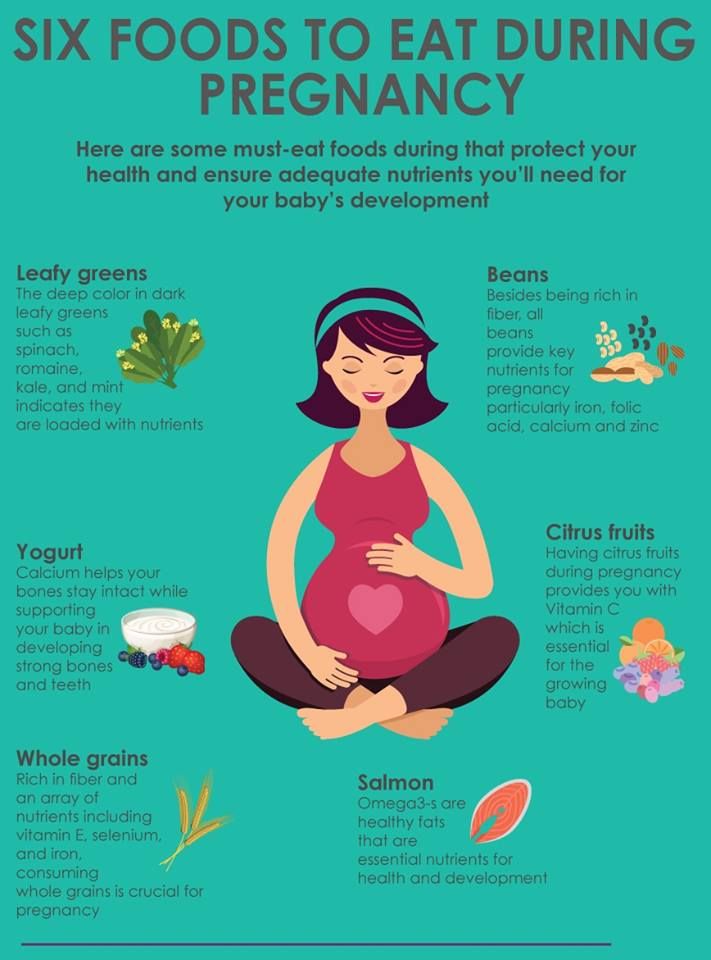 Excess salt disrupts metabolism.
Excess salt disrupts metabolism.
During this period, you can increase the calorie content of food. Childbirth must be approached physically strong. It is better to eat meat and fish in the morning, for breakfast and lunch, and for dinner, prepare dairy and vegetable dishes: cheesecakes, stewed vegetables, cottage cheese and vegetable casseroles. It is necessary to minimize the intake of canned food, smoked meats, pickles and marinades, hot spices and fatty foods. Frequent walks in the air, physical activity are recommended.
In the third trimester, it is necessary to reduce the calorie content of foods at the expense of confectionery and flour products, eat less fatty meat, as well as cheese and sour cream.
By the end of this period, many experts advise pregnant women to give up meat altogether in order to increase tissue elasticity and prevent ruptures.
During the entire period of pregnancy, special attention should be paid to the combination of products.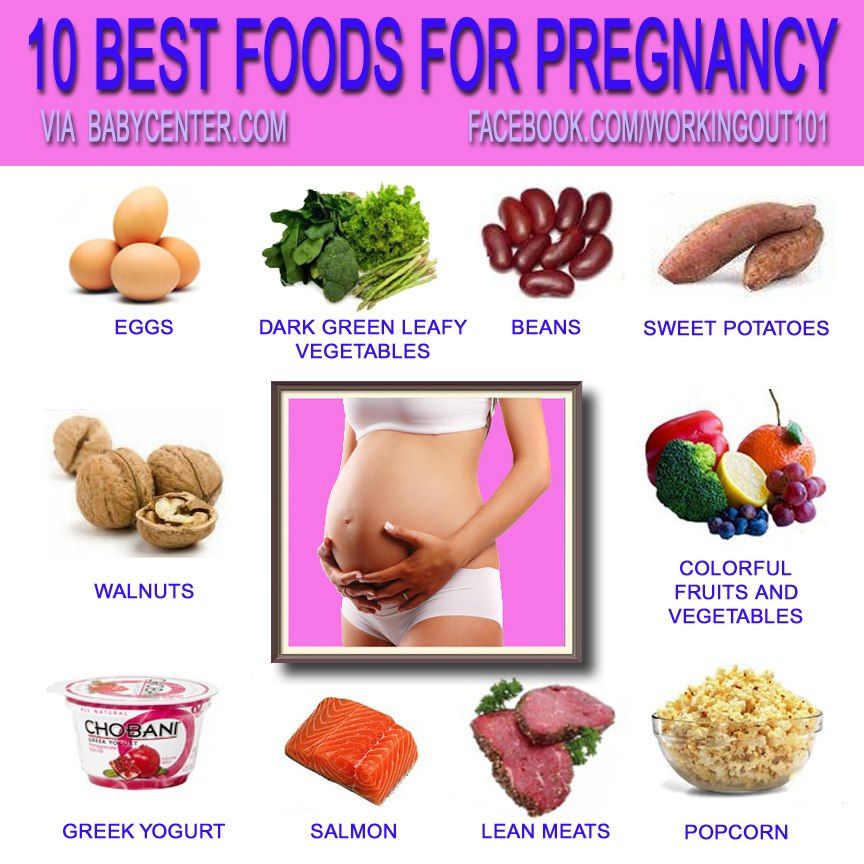 If you combine foods wisely, you can ensure more efficient absorption of food. If the food is digested poorly, then this can lead to rotting and fermentation of products and the formation of substances harmful to the body of the mother and child. In addition, the fermentation process is accompanied by gas formation, which can lead to flatulence (bloating) and discomfort. This is especially harmful in the last stages of pregnancy.
If you combine foods wisely, you can ensure more efficient absorption of food. If the food is digested poorly, then this can lead to rotting and fermentation of products and the formation of substances harmful to the body of the mother and child. In addition, the fermentation process is accompanied by gas formation, which can lead to flatulence (bloating) and discomfort. This is especially harmful in the last stages of pregnancy.
Try not to take the first, second and third course at the same time; this overflows the stomach and presses on the fetus, the food is poorly digested and poorly absorbed. Eat little and often. It is not recommended to eat immediately before starting work, a long walk, before charging and immediately after it; it is advisable to rest for 10 minutes before eating.
Eat only when you are hungry, try not to snack on the go. Follow the diet, eat at about the same time.
Proper preparation of food will help to maximize the useful substances contained in the products.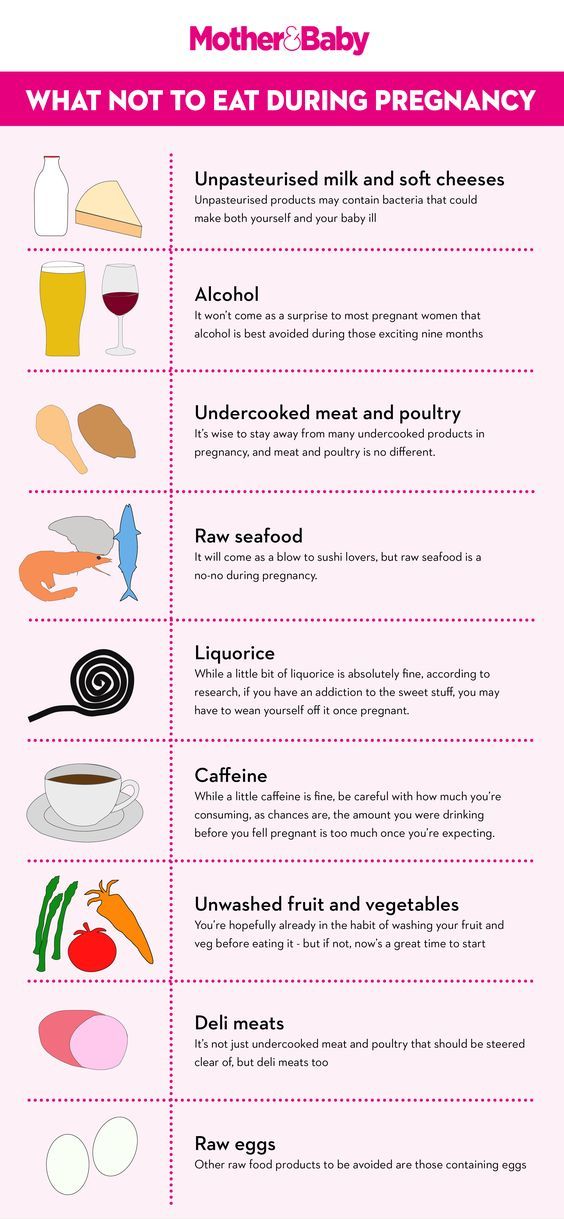 Do not overcook food, try not to reheat the same dish several times, it is better to set aside only the portion that will be used. Cook in the most gentle way: baking, steaming, stewing. Avoid frying, boiling in large amounts of water, with this method of processing products, many useful substances are lost. If possible, do not cook for several days at once. Do not use aluminum cookware when cooking. Remember that for a pregnant woman, it is not calories that are important, but the quality of food, its naturalness, primarily a “living cell” (whole cereals, raw vegetables and fruits, fresh meat and dairy products).
Do not overcook food, try not to reheat the same dish several times, it is better to set aside only the portion that will be used. Cook in the most gentle way: baking, steaming, stewing. Avoid frying, boiling in large amounts of water, with this method of processing products, many useful substances are lost. If possible, do not cook for several days at once. Do not use aluminum cookware when cooking. Remember that for a pregnant woman, it is not calories that are important, but the quality of food, its naturalness, primarily a “living cell” (whole cereals, raw vegetables and fruits, fresh meat and dairy products).
What can harm the pregnant woman and the fetus
Smoking and alcohol – quit smoking from the first days of pregnancy, if you have smoked before, avoid "passive" smoking, and do not consume alcoholic beverages in any doses.
Lack of vitamins and microelements in the body - their absence or deficiency can lead to irreparable consequences. So, for example, iodine deficiency can lead to mental retardation of a child, folic acid deficiency - to severe fetal deformities, calcium deficiency - to a violation of the formation of the child's skeleton, iron deficiency - to anemia and a delay in the physical and neuropsychic development of the child.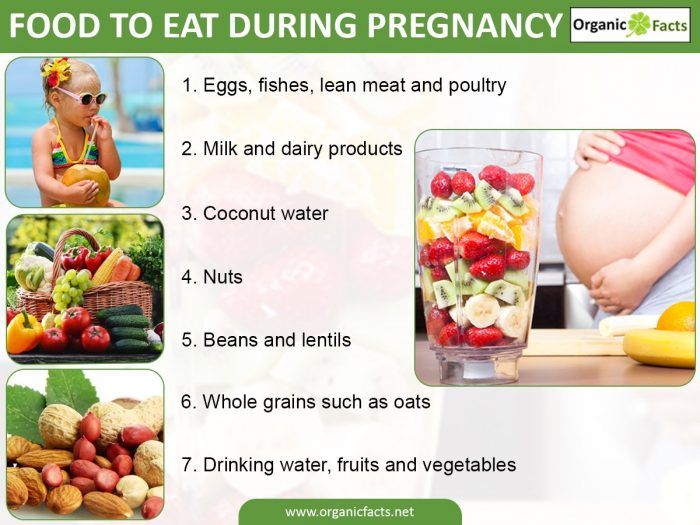 It is necessary to consult a doctor, perhaps he will recommend switching to iodized salt, as well as supplementing your diet with a vitamin-mineral complex and folic acid.
It is necessary to consult a doctor, perhaps he will recommend switching to iodized salt, as well as supplementing your diet with a vitamin-mineral complex and folic acid.
Excess weight is the risk of having a large child, which means the risk of complications during childbirth and the child's tendency to become obese at an older age.
The use of food additives (sauces, seasonings such as vegeta, bouillon cubes), exotic fruits, semi-finished products, carbonated drinks - the risk of allergies and anomalies in a child, unfortunately, increases.
Recommended for pregnant women:
- Do not eat hot dogs and other snacks containing meat that has not been heated on fire or boiled in boiling water.
- Avoid soft cheeses. Hard cheeses are safe.
- Do not eat raw frozen pies and meat pastes, seafood. Canned analogues are safe.
- Do not consume raw vegetables, unpasteurized juices, liver, meat, poultry and eggs that have not been sufficiently cooked.
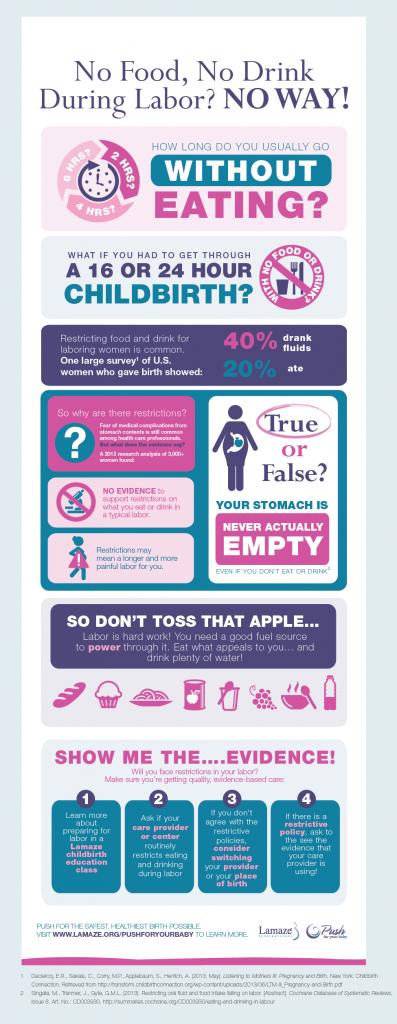 These products may contain Salmonella taxins.
These products may contain Salmonella taxins. - Limit sweets.
- In no case do not resort to starvation and various diets.
- Regularly monitor blood pressure and do not miss visits to the gynecologist.
Remember!
Your child's development and health depend on your diet and lifestyle during pregnancy!
Nutrition during pregnancy in the first, second, third trimester
The most important nutritional rules for pregnant women
Monitor the calorie content of food and the variety of foods consumed.
It's great if the expectant mother began to think about her diet in advance and mastered the basics of a healthy diet for those planning a pregnancy. In this case, it will not be difficult for her to establish a regimen, being in an interesting position. She already knows that the proper nutrition of a pregnant woman should not be monotonous; dishes from various foodstuffs must be included in the menu: meat, fish, cereals, vegetables, fruits, etc.
Eat often and in small portions.
In an interesting position, a woman's appetite noticeably improves, especially in the second trimester, or when toxicosis passes. At this time, the expectant mother needs to be more careful and prudent. The nutrition of a pregnant woman in the early stages should be dosed so as not to get better and, at the same time, be able to provide the baby with useful substances.
Eliminate or limit harmful foods.
It is quite logical that a healthy diet for pregnant women excludes the frequent use of harmful products: fast food, salty and smoked products, sweets and starchy foods. It is important to remember that in most cases, their excessive consumption can adversely affect the child and in order not to harm the baby, you should eat them in moderation.
Never skip breakfast.
In the first trimester, the expectant mother may suffer from nausea and vomiting - signs of early toxicosis, due to which women often skip meals in the morning.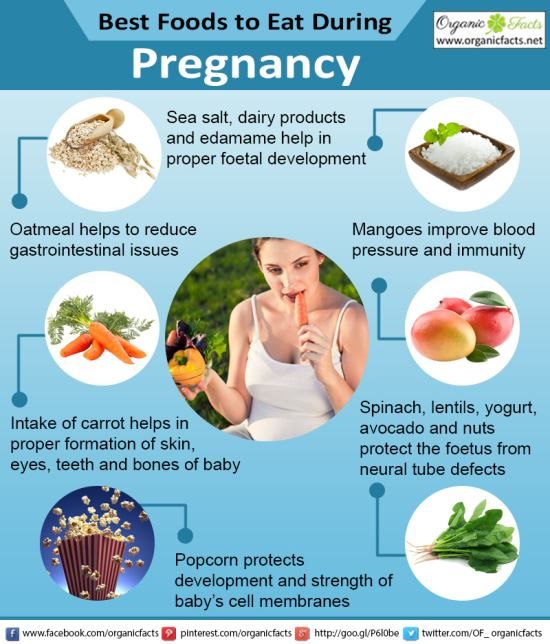 Doctors insist that at least a small snack is necessary for breakfast. You can choose something that will not cause nausea, for example, some kind of fruit or lean product.
Doctors insist that at least a small snack is necessary for breakfast. You can choose something that will not cause nausea, for example, some kind of fruit or lean product.
Prepare food in a gentle way.
Dietitians who advise on healthy eating recommend methods such as baking, sautéing, boiling or steaming. At the same time, the dishes retain a maximum of vitamins for mom and baby.
Drink plenty of fluids and do not eat dry food.
This is the golden rule of healthy nutrition for pregnant and lactating mothers. Drinking at least one and a half to two liters of water a day helps to remove toxins and improve bowel movements.
What foods should pregnant women eat in the first trimester?
The diet of the future mother in the first trimester should be healthy and balanced. Eat plenty of vegetables and fruits - they are rich in vitamins and fiber. Do not forget about carbohydrate food - it satisfies the increased needs of the female body for energy.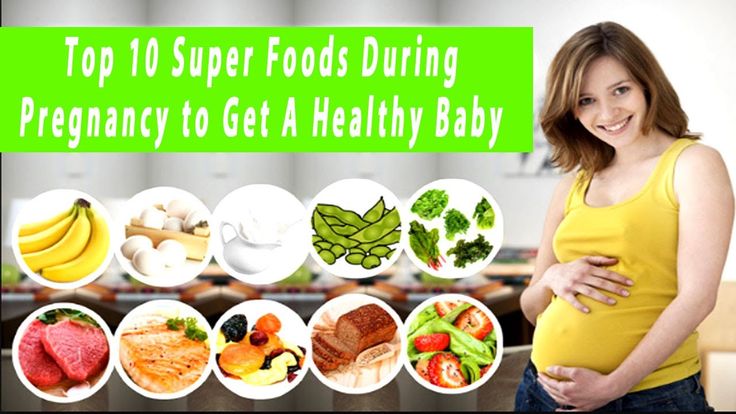 Do not give up meat and dairy products that supply proteins - the building blocks for a growing fetus. Have fish days from time to time to ensure you get enough essential omega acids.
Do not give up meat and dairy products that supply proteins - the building blocks for a growing fetus. Have fish days from time to time to ensure you get enough essential omega acids.
What should not be eaten during early pregnancy?
At the beginning of pregnancy, the fetus is most vulnerable, so it is advisable for the expectant mother to eat only high-quality and fresh food. Especially dangerous in the early stages are raw foods and dishes that have undergone insufficient heat treatment, such as unpasteurized milk, blue cheeses, soft-boiled eggs, sushi, meat "with blood", etc. They can lead to bacterial infections that are dangerous for a healthy pregnancy.
Pregnant nutrition in trimesters
Most women planning to conceive begin to monitor their diet before pregnancy. But even if the expectant mother has not thought about it before, it is never too late to start eating healthy foods. So, how to eat during pregnancy?
In the 1st trimester, nutritionists recommend a gradual transition to a healthy diet.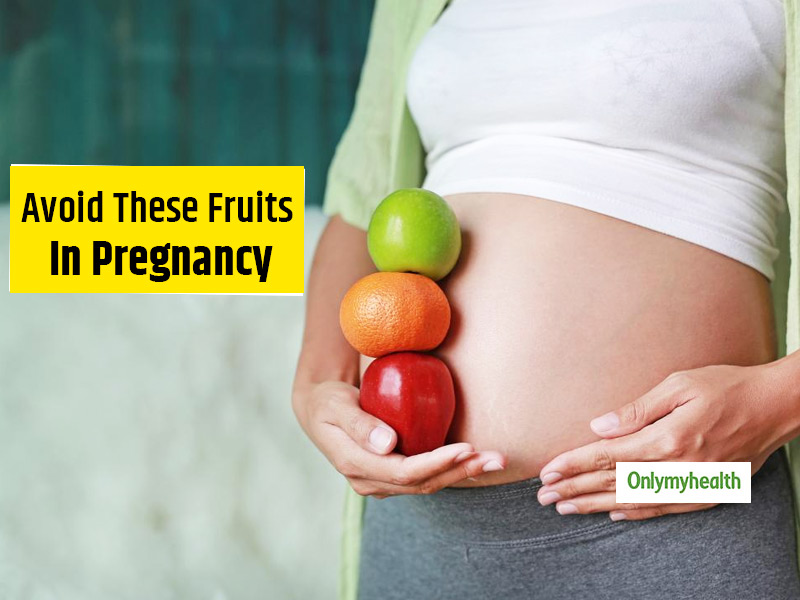 Changing your diet too quickly will not help. Nutrition in the early stages of pregnancy should be varied. In the 1st trimester, products containing beneficial trace elements should be smoothly introduced. The most important thing is to keep the future mother in a good mood and well-being.
Changing your diet too quickly will not help. Nutrition in the early stages of pregnancy should be varied. In the 1st trimester, products containing beneficial trace elements should be smoothly introduced. The most important thing is to keep the future mother in a good mood and well-being.
In the 2nd trimester there is a rapid development of the fetus. During this period, it is necessary to include in the diet foods that contribute to the further growth of the baby. There is a development of the brain, respiratory organs, the laying of teeth occurs and the skeletal system is strengthened. Mom needs to eat foods containing calcium and vitamin D.
In the 3rd trimester, you need to pay as much attention as possible to the calorie content of food. During this period, there is a high probability of rapid weight gain, which can complicate the last weeks of pregnancy and the birth process. With edema, which often occurs in the 3rd trimester, you should consult a specialist and follow a special diet.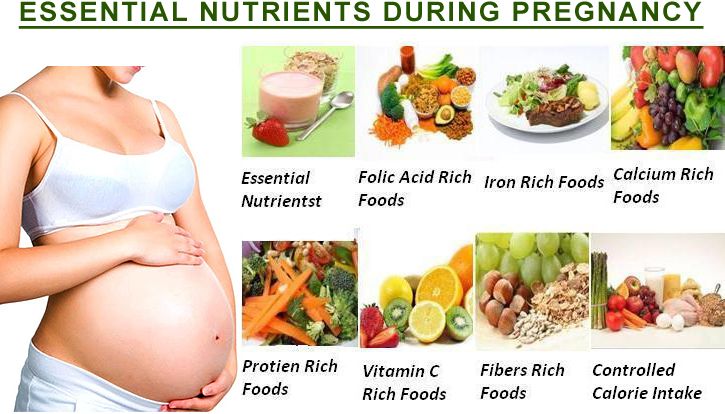
Period of pregnancy
I trimester
II trimester
III trimester
Macro- and micronutrient requirements
, iodine, magnesium, phosphorus, proteins, fats, potassium, iron.
Vegetable fats, vitamins E and D, ascorbic acid, retinol, calcium.
Recommended Food List
Lean meat, eggs, lean cheese and cottage cheese, liver, legumes, wholemeal bread, seaweed, fresh juice, fruits and vegetables, grains, sea fish.
Bran bread, dairy products, spinach, sea fish liver, lean meat, cereals, vegetables and fruits, herbs.
Sea fish, fruits and vegetables, nuts, vegetable soups, cereals, dairy products.
List of not recommended products
Fast food, chips, canned food, carbonated drinks, coffee, alcohol.
Canned food, sweets, mushrooms, coffee, alcoholic beverages, fast food, smoked and spicy foods.
Salty, fried, spicy dishes; alcoholic and carbonated drinks, strong coffee, fatty foods.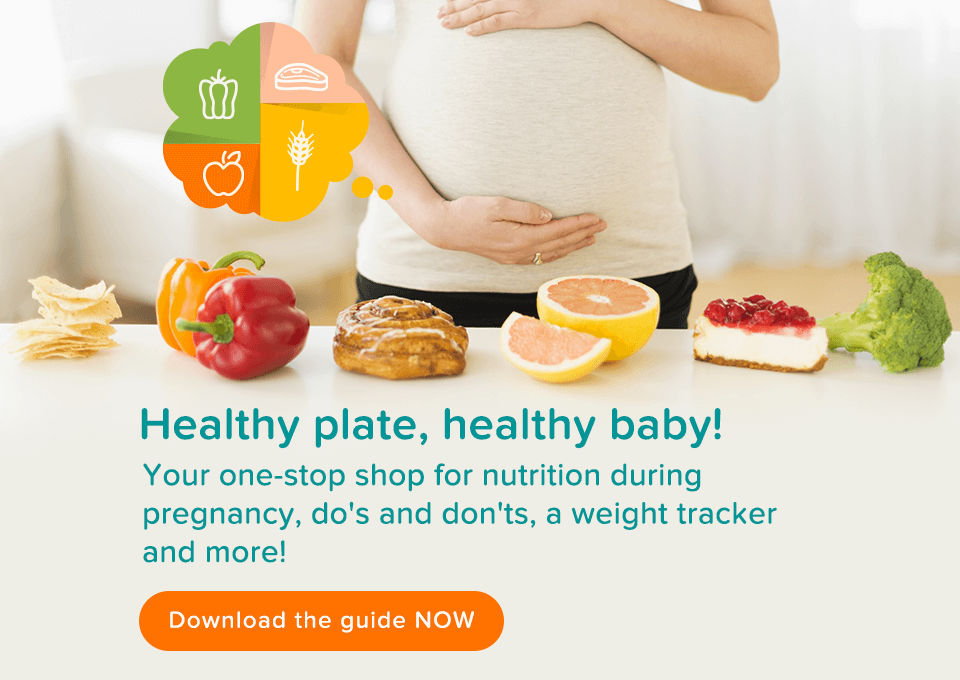
As can be seen from the table, in the first and third trimester the list of not recommended and allowed products is approximately the same. The most important thing is to make the weekly menu varied and balanced, which will help the baby develop properly.
Expectant mother's nutrition by weeks of child development
Changes are constantly taking place in the expectant mother's body, the fetus grows and develops, which means that the need for substances and microelements varies depending on the duration of pregnancy. The nutrition of a pregnant woman by week should remain healthy and varied. However, certain foods must be added to the diet.
- 1-4 weeks: dairy products (especially cottage cheese), green vegetables, eggs, broccoli, spinach, oatmeal, turkey;
- 5-10 weeks: dairy products, sauerkraut, dried fruits, lean beef, fruits, fruit drinks;
- 11-16 weeks: milk and dairy products (cottage cheese, kefir, cheeses), low-fat fish and meat, fruits and vegetables;
- 17-24 weeks: cabbage, bell peppers, carrots, lean poultry, rabbit, fish, eggs, berries, greens;
- Weeks 25-28: cereals (oatmeal, buckwheat), low-fat soups, stewed vegetables, baked or boiled meat.

- 29-34 weeks: red fish, nuts, eggs, dairy products.
- 35-40 weeks: fresh fruits, stewed vegetables, salads, meat in small quantities.
Experts note that the nutrition of a pregnant woman should be balanced. It should contain sources of protein, fats, vitamins and minerals. The closer the timing of childbirth, the more “easy” the diet of the expectant mother should be.
Pregnancy Nutrition Pyramid
Experts recommend that their patients use the Pregnancy Nutrition Pyramid. Doctors rightly believe that this graphic image, like a table, summarizes all the necessary information. It shows what to eat during pregnancy and what should not be consumed in any case. For ease of reference, healthy foods are listed in descending order of benefit (from bottom to top).
- cereals;
- vegetables and fruits;
- dairy and meat products;
- animal fats, sweets.
The last floor - animal fats and sweets - these are the products that should be as little as possible in the diet of a pregnant and lactating woman.
So, we have looked at how to eat properly during pregnancy: what foods are best to eat and what kind of food intake should be followed by the expectant mother. Pregnancy is a time when you have a great opportunity to take care of yourself and your unborn child. A woman in an "interesting position" should remember that nutrition plays an important role in the development of the fetus. In addition, the daily diet affects the well-being and mood of the mother herself.
What should be avoided during pregnancy?
By and large, no products from the assortment of an ordinary supermarket, if they have not deteriorated and are cooked correctly, can harm the baby - only the figure of the expectant mother. Products that are really harmful to the fetus enter the table in completely different ways: these are large predatory sea fish (may contain a significant amount of mercury), game (there may be particles of lead from the shot), products purchased "on the highway", "from grandmother", etc.
